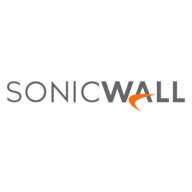


SonicWall TZ and Huawei NGFW compete in the cybersecurity sector, focusing on firewall and VPN solutions. SonicWall TZ appears to have an advantage due to its ease of configuration and competitive pricing, while Huawei NGFW stands out for its integration capabilities and cost-effectiveness.
Features: SonicWall TZ offers ease of configuration with Site-to-Site VPNs, competitive pricing for high availability, and advanced application control features. It provides strong security measures and high throughput. Huawei NGFW provides robust integration capabilities, virtual system creation, and efficient firewall performance.
Room for Improvement: SonicWall TZ could improve in reporting tools, application detection, and GUI intuitiveness. Its hardware is seen as outdated, and SSL inspection presents challenges, with technical support needing improvement. Huawei NGFW lacks advanced features like sandboxing and superior threat intelligence, and users face local support and integration challenges.
Ease of Deployment and Customer Service: Both solutions are primarily deployed on-premises, with SonicWall TZ offering better support for hybrid cloud settings. SonicWall users report reliable, though sometimes delayed, technical support, with language barriers as a common issue. Huawei NGFW receives mixed customer service reviews, with some users noting delays and complications.
Pricing and ROI: SonicWall TZ uses a flexible pricing model but may become costly due to subscriptions and high licensing fees for extra features. Despite this, its features provide a good ROI by preventing intrusions. Huawei NGFW is more economically priced than competitors like Cisco and Palo Alto, though renewal and support costs can be significant.
Clients are now comfortable and not wasting productive hours on IT support.
We have experienced a positive return on investment by utilizing Fortinet's products.
There's definitely an ROI. Having a centralized way of managing and applying policies across the entire organization always helps.
That is a reason to buy a firewall, and it is challenging to put a monetary value on security.
He explained that it required a command line configuration, as it couldn't be done through the graphical user interface.
I would rate their support for FortiGate a nine out of ten.
They offer very accurate solutions.
Customer service is excellent.
They scale up really well from smaller models like the FortiGate 40 and 50 to bigger sites with the FortiGate 100 for more throughput - up to enterprise datacenters.
The variation comes in terms of the interfaces and throughputs, but from a security perspective, you get the same benefit, irrespective of whether you have an entry-level unit or an enterprise.
You can choose a cheaper model if you only have 20-30 users, but you will need to spend more money for a FortiGate solution that covers 5,000.
Improper handling of these can lead to a memory surge, a well-known bug that can cause the entire system to freeze.
It is less stable than Palo Alto Networks and Check Point firewalls because there are lots of bugs in the latest firmware.
We have not had any problems with the operating systems or maintenance of subscriptions.
In terms of stability, SonicWall doesn't have performance issues.
SonicWall TZ is definitely stable and offers a good value for money.
If I have put 10 GBPS of throughput on a firewall and I enable all of these features available, such as IPS or UTM functionalities, the throughput comes down to 1 GBPS.
By providing an integrated solution, users would have access to all features and functionalities within a single window, eliminating the need to navigate through multiple windows.
Investing in a solution that can accommodate such growth would be more cost-effective than repeatedly purchasing new hardware.
Integration with other vendors, especially with VPNs, can be challenging and requires more effort when configuring.
SonicWall TZ could benefit from newer technology.
The VPN license should be improved by providing more free SSL VPN licenses.
Secure SD-WAN is free of charge.
The most expensive part is the renewal of the license subscription.
FortiGate is priced lower than Palo Alto.
More licenses are required to purchase the perpetual license for SSL VPN and Global VPN.
When comparing similar products across vendors, there may be a small difference in cost.
I would also position its pricing as a three, where one is the lowest price and ten is the highest.
The firewall, IPS, and VPN functions are the most valuable features.
FortiGate provides solid protection against viruses, malware, and other threats.
Within the same dashboard, you get to see the security profiles, the type of traffic that's passing through, the top applications that are being consumed, etc.
For SMB segments, SonicWall performs well.
It was beneficial during COVID for remote work through its VPN functionality.
The advanced gateway security features such as web filter, application control filter, IPS, ideas, gateway antivirus, anti-spyware, and botnet filter are valuable.



Fortinet FortiGate offers comprehensive network security and firewall protection across multiple locations. It effectively manages data traffic and secures environments with features like VPN, intrusion prevention, and UTM controls.
Organizations rely on Fortinet FortiGate for its robust integration with advanced security policies, ensuring significant protection for enterprises, cloud environments, and educational sectors. It facilitates network segmentation, application-level security, and authentication management, securing communication within and between locations such as branches and data centers. Its efficient SD-WAN and UTM features enable streamlined data management and enhanced threat protection capabilities. Users appreciate its centralized management, facilitating seamless operations across diverse environments.
What are the key features of Fortinet FortiGate?
What benefits should users expect from Fortinet FortiGate?
Fortinet FortiGate is crucial in sectors like education, offering robust networks for secure data flow between campuses and facilitating remote learning. In enterprise environments, it allows efficient management of application traffic and security across multiple branches, while in the cloud, it seamlessly integrates with diverse platforms to enhance security infrastructure.
Huawei's Next-Generation Firewall (NGFW) is a cutting-edge security solution designed to protect networks from advanced threats. With its advanced threat detection and prevention capabilities, the Huawei NGFW ensures the highest level of network security.
The product offers comprehensive security features, including intrusion prevention, application control, and URL filtering, to safeguard against a wide range of cyber threats. The NGFW also provides deep packet inspection and advanced threat intelligence, enabling real-time threat detection and response.
With its high-performance architecture, the Huawei NGFW delivers fast and efficient security without compromising network performance. It is easy to deploy and manage, thanks to its intuitive user interface and centralized management platform.
The NGFW also supports flexible deployment options, including virtualization and cloud integration, making it suitable for various network environments.
We monitor all Firewalls reviews to prevent fraudulent reviews and keep review quality high. We do not post reviews by company employees or direct competitors. We validate each review for authenticity via cross-reference with LinkedIn, and personal follow-up with the reviewer when necessary.